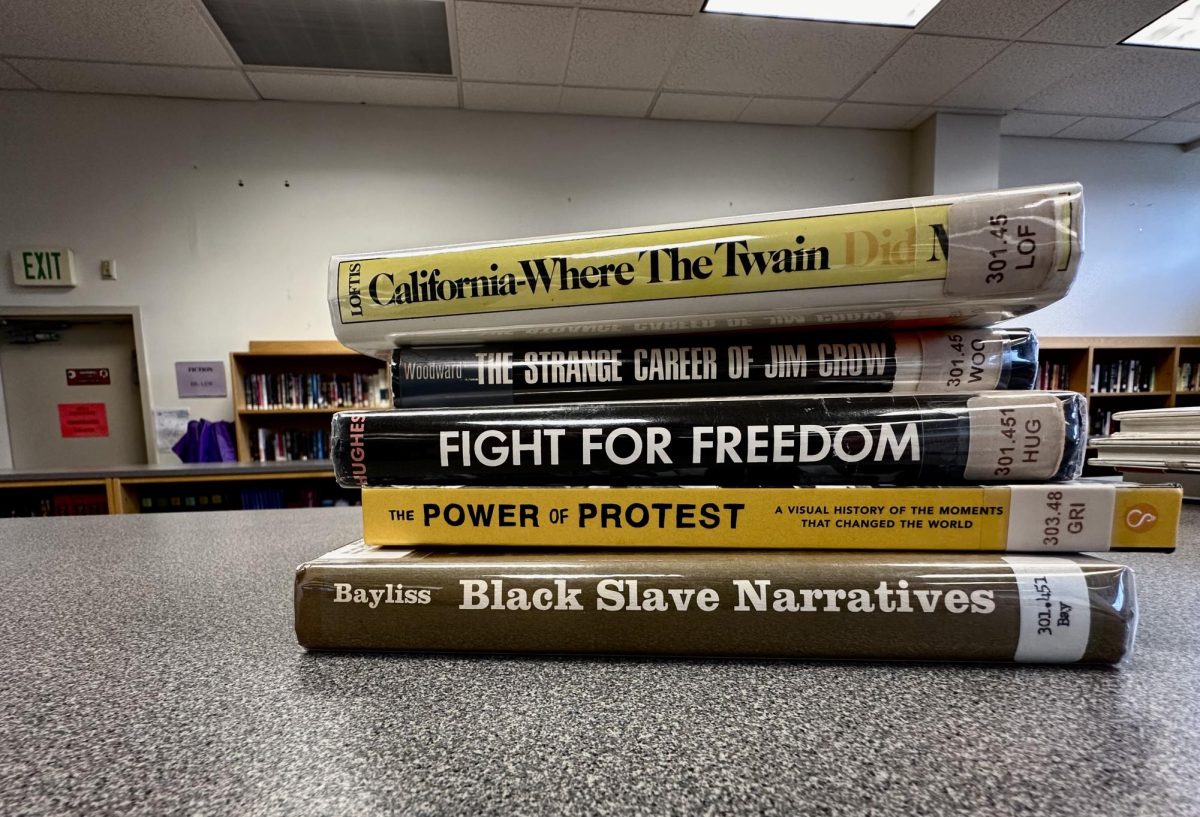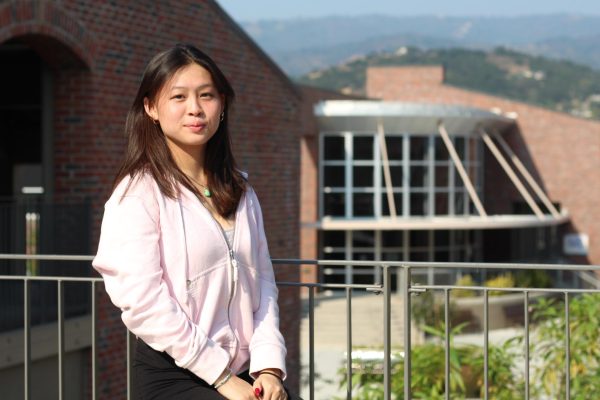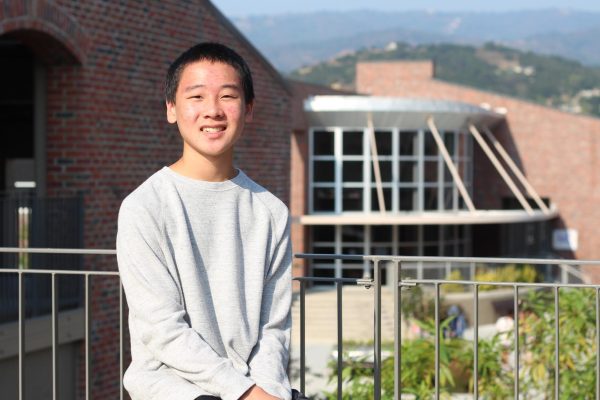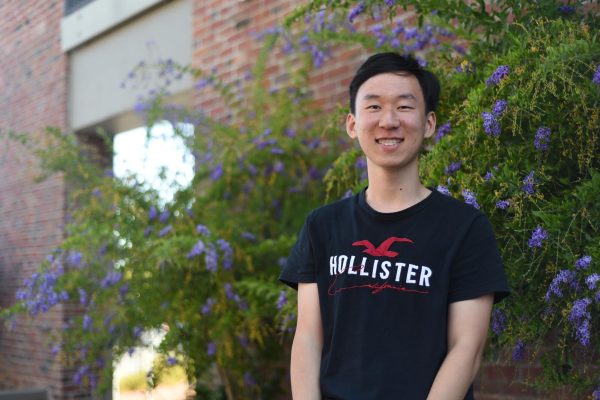When librarian Laura Utile’s children came home from Catholic class one day talking about how their teacher banned them from reading “The Golden Compass,” Utile responded with a simple question: “What does that make you want to do?” Their curiosity had fueled their desire to read the book, and Utile’s solution was straightforward: “We’ll read it together.”
Utile believes having conversations with her children about books and why they might be controversial is more beneficial than banning the books. She recognizes that her children may not agree with her on everything, and she does her best to support them when they question things around them. Utile says that it is important to be able to choose what one wants to read rather than having that choice made for them by someone else.
As part of California’s Family Agenda, Governor Gavin Newsom signed Assembly Bill 1078 in late 2023 to prohibit book bans in schools. This bill comes in light of states across the country enacting legislation against inclusive texts that limited students’ education. AB 1078, which Newsom referred to as “long overdue,” aims to curb censorship of texts that discuss racial or LGBTQ+ themes.
Associate Superintendent Tom Avvakumovits says this new legislation “provides an additional layer of protection” for the FUHSD English Department’s efforts to diversify and add additional English texts. Avvakumovits, however, notes that Moms for Liberty, a conservative coalition that advocates against school curricula mentioning LGBTQ+, critical race theory, ethnicity and discrimination, has contacted FUHSD several times asking if any school or classroom library in the district had certain texts available for students to read. Citing the California Public Records Act in their letter to FUHSD in August 2023, Moms for Liberty requested that FUHSD provide the titles of certain texts — if the school possessed them — within 10 days.
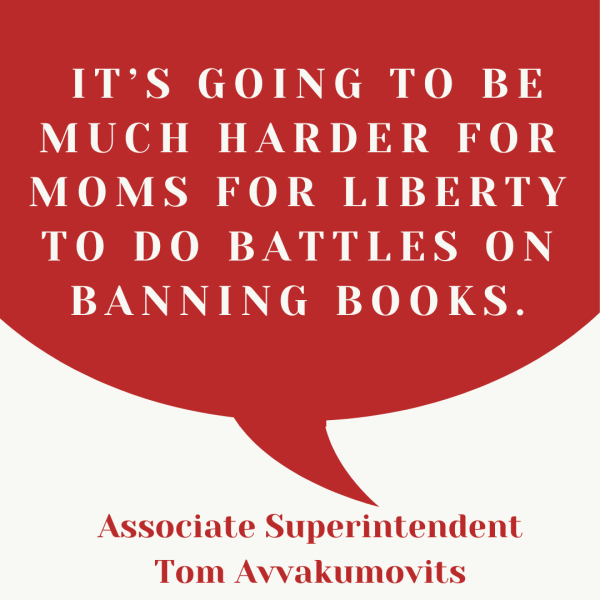
“Suppose a group of concerned citizens came to our school board and found a particular title in our school libraries and raised the book up and said ‘This book should not be in the Monta Vista Library’ and ‘I demand that you remove it,’” Avvakumovits said. “With this law, the school board, even if they wanted to remove it, can no longer remove it. It’s going to be much harder for Moms for Liberty to do battles on banning books with the passage of this state law.”
Historically, FUHSD’s opt-out policy allowed students to be excused from an assignment, like a literary text, upon a parent or guardian’s written request, if the assignment conflicts with the student’s religion or personal beliefs. According to Avvakumovits, FUHSD has revised the opt-out policy to provide increased clarity for when a student is allowed to opt out. He says that while opting out is still an option, doing so is only possible after the student gets approval from the principal to be excused for a reason that “is not based on any discrimination.”
“The principal can speak with the teacher and say ‘Because of this very specific situation that is unique to this individual student, let’s find an alternative assignment,’” Avvakumovits said. “That’s what the policy was revised to. What the policy prohibits is this notion of ‘I don’t want my kids reading about LGBTQ+ because it’s against my religion.’”
Senior Alice Ross says that exposing children to a variety of topics in an educational setting is beneficial to expanding their worldview. While they acknowledge that some parents may want to limit the development of destructive ideals in their children, they don’t think book bans are an effective means of doing so. They believe that books with explicit or sensitive themes should not be outright banned from library shelves, but rather labeled with appropriate warnings to allow readers to self-censor.
“Whenever you limit the information available to students, you limit the scope of their education,” Ross said. “If you learn about it after you graduate, you’re out of college, you get dumped headfirst into something you’ve never been exposed to before. If you want the safety of your kids, introducing them to things like gender, sexuality, race issues and class issues is probably a safer way of introducing them to a wider world.”
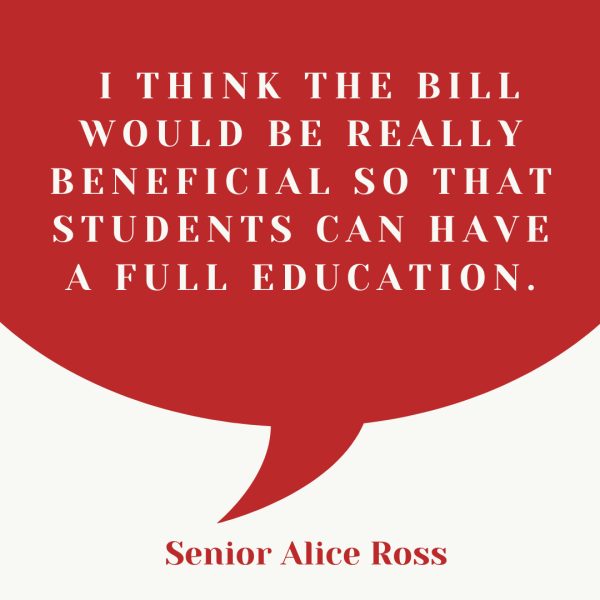
Ross says that outcry from parents to impose certain restrictions on texts is counterproductive to their children’s education and that students advocating for themselves would be most worthwhile. She believes that students’ voices should be heard and respected, as they are directly impacted by the curriculum and availability of information.
“We’ve read books written by authors of color, we’ve read books with characters of color, LGBTQ characters and characters from different classes,” Ross said. “I think we read a pretty diverse list of books, but I think that’s because Cupertino is a bit of a bubble. For all the areas that are outside of the bubble, I think the bill would be really beneficial so that students can have a full education.”
Similarly, English teacher Lynn Rose agrees with Ross and also believes that the bill is important in protecting teachers and students. Though instances of explicit book bannings have not affected MVHS in recent years, other incidents have occurred. In 2017, the ninth grade English department piloted a program introducing “Aristotle and Dante Discover the Secrets of the Universe” and later added the novel to the curriculum, which sparked an outcry from parents as it followed the love story between two boys. According to Rose, following the introduction of the book, at least one parent every year objected to the novel being taught and requested that their student opt out.
“We as a department didn’t feel like opting out was acceptable because what message does that send to the rest of that student’s classmates?” Rose said. “Why was that student able to remove themselves when we might have had LGBTQ+ students in the classroom? And that message, it wasn’t OK. We wanted to make sure that voices are being heard in our curriculum. We were focused up until then with people of color and making sure that we had enough female authors in the curriculum, and we really didn’t have any LGBTQ representation at all.”
Utile expresses a similar view on maintaining a diverse selection of viewpoints. When she attended high school, she experienced a lack of representation in the literature offered at school. In the ‘80s, Utile explains that though there were novels that reflected the experience of her brother, she felt an absence of literature that reflected her experience as a woman or the experience of her Asian friends. In her 10 years working at MVHS, she has seen a growth in the variety of literature that is available to students.
“We have a lot more books based on characters or people of color, whereas in the past, there were not a lot of books representing our student population,” Utile said. “Now, there’s more books that are being published that are more reflective and diverse than they were in the past. Now, there are quality books that are being made that we’re able to include in our collection.”
Rose believes that access to books is a necessary part of a student’s education. Rose opposes book bans that are being imposed in other states, such as Florida and Texas, because she claims that book bans violate the freedom of speech.
“It makes me just really sick that book bans are even happening in our country, especially what’s going on in Florida and the way that they’re going after teachers and librarians who have books in their classroom that represent the demographics of their schools,” Rose said. “I feel like we should have access to any literature that we want that helps us understand ourselves and the world and the people that live in it.”
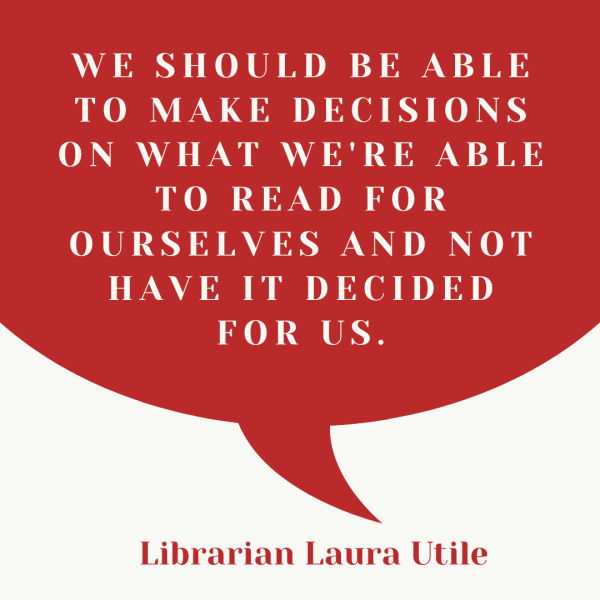
Utile agrees and explains that it is important for people to have access to varying perspectives, especially in the polarized environment she sees today. She believes that access to different ideologies can allow people to see each other’s perspectives and bridge their differences.
“I just hope that we still have the continued freedom to be able to read material and have access to books and make our own conclusions,” Utile said. “We should be able to make decisions on what we’re able to read for ourselves and not have it decided for us.”
Avvakumovits says inclusive texts remain essential to students’ upbringing, and FUHSD English teachers have made efforts to achieve that by introducing additional diverse texts to the curriculum at monthly board meetings.
“To quote our former English Department Curriculum Lead Greg Merrick, ‘Literature can often be seen as windows and mirrors. Windows allow us to see how other folks are experiencing the world through their feelings and emotions so we get a broader perspective that not everyone experiences events and situations like I do — mirrors to be able to look at myself and say I can really resonate with this character and understand some of the things they’re going through,’” Avvakumovits said. “It is affirming to read in literature about thoughts, feelings, emotions, pressures and challenges that the characters face. I think that’s why we read literature.”






